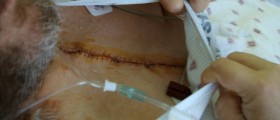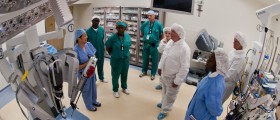
What Is Triple Bypass Surgery?
Triple bypass surgery is performed in people who are suffering from a severe blockage of the coronary arteries. To be more precise, triple bypass surgery is performed in people who are suffering from a blockage of more than one coronary artery. In these patients, medications simply cannot increase supply of the heart with oxygen sufficiently any longer, and so they are at significant risk of developing a heart attack.
In a triple bypass surgery, partially or fully blocked arteries are restored to function by creating a new channel through which blood can flow. This is achieved by taking blood vessels from other parts of the body and connecting them to the arteries.
Bypass surgery generally helps the heart to restore affected blood flow and to be well supplied with oxygen and other nutrients. Triple bypass surgery is major surgery which carries a certain risk of complications. The complications may be either immediate or long-term.
Risks and Complications of Triple Bypass Surgery
Patients who undergo triple bypass surgery need to be fully informed about all the possible risks as well as benefits connected to the surgical procedure, in other words, they need to be able to give informed consent. The surgery can offer excellent results but they are not permanent since atherosclerosis tends to re-occur especially if the patient does not change their lifestyle, regularly take their prescribed medications, and does not engage in regular physical activity.
The first risk associated with a triple bypass surgery lies in the anesthesia. There are adverse reactions to anesthesia. The side effects are most commonly mild but in some patients there may be severe reactions, such as depression of the central nervous system, respiratory depression, or even cardiac arrest. Still, the most common side effects of general anesthesia are mild, in the form of nausea and vomiting. A heart attack, stroke and lethal outcome may occur as well, however, and it is important to know this.
Prolonged and excessive bleeding is another complication of triple bypass surgery. If it occurs during the surgery patients are commonly administered a blood transfusion. The bleeding may continue after the surgery so that the patient needs to have an additional operation. Infections may occur as well and they are either local and connected to the incision line, or they may affect certain organs such as the lungs causing pneumonia or the bladder causing cystitis. Infections occur rather rarely because all the patients are prophylactically prescribed a course of antibiotics. Additional prevention measures against infection are proper sterilization of the operating theater and all the instruments that are used during the surgery.
Patients who have undergone this type of surgery may additionally complain about subtle changes in long term memory and comprehension. They can even experience difficulties with concentration.
The goal of triple bypass surgery is prevention of the heart attack and elimination of the chest pain. One of the possible complications is re-occurrence of the chest pain. This complication can be successfully evaded if the patient quits any bad habits that led them to require ths surgery in the first place, such as smoking, and adopts new, healthy habits such as light exercise, a proper and heart healthy diet, and better ways of coping with stress.

















Your thoughts on this
Loading...